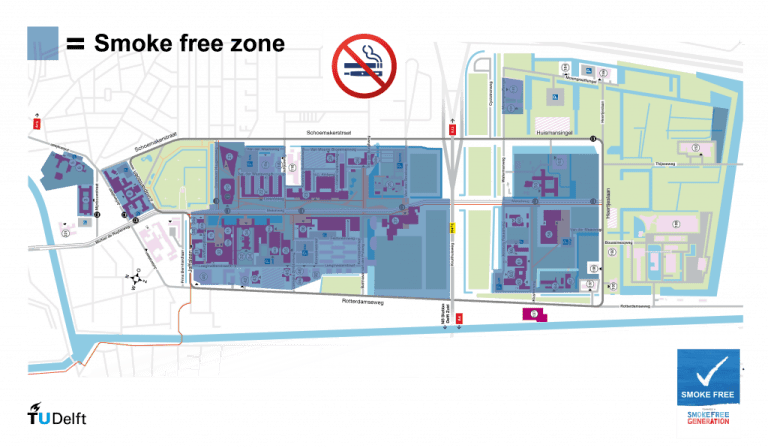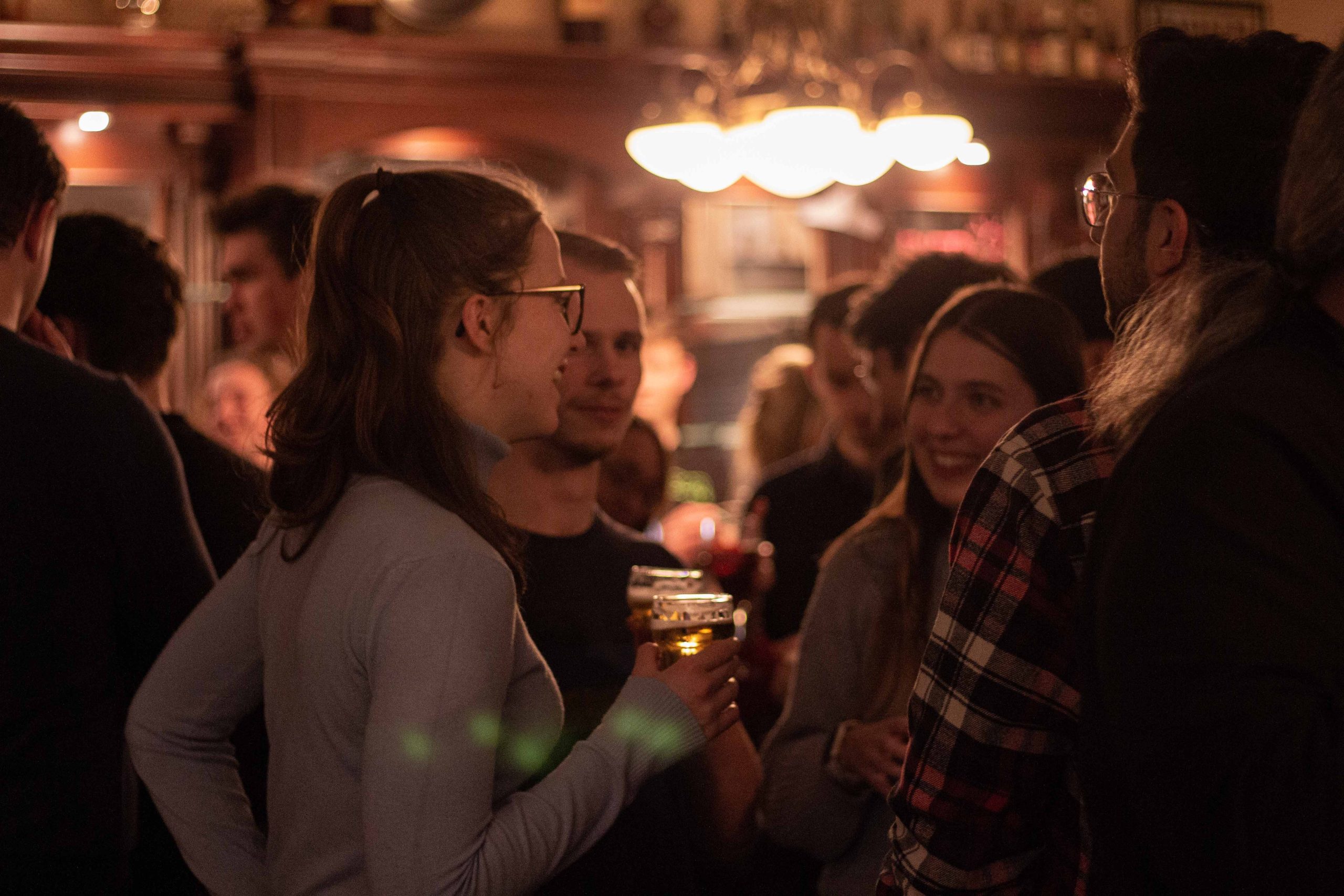TU Delft is early with its New Year’s resolutions. Effective on 1 January, there will be a new ‘Alcohol and Substance policy’ that is hoped will lead to a culture change.
Faculty pubs like PSOR will not be allowed to serve liquor from 1 January 2023. (Photo: Justyna Botor)
The most important clause in the new Alcohol and Substance policy (intranet, in Dutch) is that no alcohol may be drunk anywhere on the TU Delft campus on weekdays and at the weekends with the exception of the student complexes. The boundaries are the same as for the No-smoking Policy that has been in effect since 2020 (see the map below). Drinks, activities and events in and around TU Delft’s buildings will thus be alcohol free before 17:00. Building managers may make exceptions in special circumstances such as for New Year gatherings when the restriction will be until 14:00.
The policy note also specifies that is it not permitted to be under the influence of alcohol or substances on campus before 17:00. Substance use is always banned. Under substances, TU Delft understands ‘not only the sedatives and stimulants that are banned under the Opium Act, but also substances like nitrous oxide (laughing gas) and performance enhancing drugs such as Ritalin’ (with the exception of medically prescribed medications).
The alcohol content in drinks
Liquor is no longer permitted on campus. There will be a maximum alcohol percentage of 15%. This will include at social occasions such as drinks at the workplace, during activities and events, and in the internal hospitality facilities such as the faculty pubs. Separate agreements may be made for the X sports and culture centre that may include times that alcohol may be served at the weekend. This is still under discussion between X and the Executive Board.
Staff members and students may no longer keep alcohol packaging – empty or filled – in areas such as offices, pantries, laboratories, workplaces and technical spaces. Only the secretariats may keep a small amount of alcoholic drinks below 15% as business gifts. In general, the policy note states that alcohol free, and thus more inclusive, business gifts are preferred.
Apart from the umbrella policy, building managers can set additional guidelines, including safety guidelines, for events. This could include the requirement that there are enough in-house emergency first responders present. The recommendation is to uphold the alcohol and substance policy at TU Delft events at external locations too. The rules are stricter for new students during the introduction period. They also have to comply with the rules off campus too ‘as these are strongly associated with TU Delft and education’.
Change in culture
Although the subject of alcohol and substance use is not new, this is the first time that TU Delft is drafting a policy that will apply to everyone on campus. There have long been agreements with study and student associations (in Dutch), the OWee introduction week has rules, and the Faculty of Electrical Engineering, Mathematics and Computer Science has had a similar policy (in Dutch) for years. Information is also shared with first year students and there are addiction specialists on campus.
Still, there needs to be some degree of culture change, emphasises the policy note, and this is the intention behind the policy. TU Delft points to research which shows that a lot of people have problems with alcohol or drugs, that this negatively affects health and well-being, and brings all sorts of unpleasant effects to both the users and for the people that they are in contact with, including study delays and aggression.
One part of the new culture is that staff members and students address each other on the excessive use of alcohol and substances. Anyone finding this hard to do can approach their supervisor or Human Resources for advice. Students can approach an academic counsellor or degree programme director. Supervisors are required to help their staff members who have problems with alcohol or substances and, if necessary, refer them to a specialist like the company doctor. Alcohol and substance abuse must also be included in the introduction of new students and staff members.
Should these measures not be enough and undesirable situations arise, campus security can enforce the rules in consultation with complex managers and company first responders. Should it transpire that an incident is indeed caused by alcohol or substance abuse, the security officers involved will report it to the supervisors or dean.

(Image: TU Delft)
Do you have a question or comment about this article?
s.m.bonger@tudelft.nl


Comments are closed.